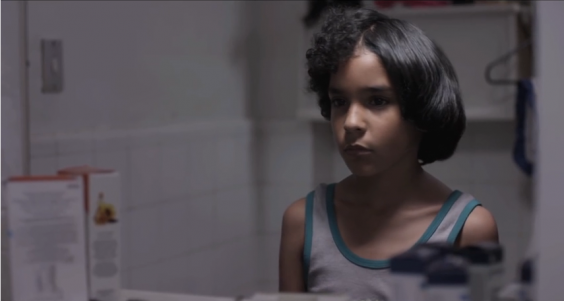Pelo Malo
by Israel Centeno and translated by Alex Higson / November 14, 2014 / No comments
An award-winning film casts light on individual persecution in Venezuela.
Leaving to one side familiar landscapes and the immediate reference points of the city, you can hear the rumor of something sordid, but sordidness is not always rough, just precarious, a space without options, predetermined, where fatalism hangs over the characters like a dead weight.

- From his lonely watch post Albert Camus asked who among us has not experienced exile yet still managed to preserve a spark of fire in their soul. “We’re all alone,” Natalia Sedova cried in exile on hearing of her husband Leon Trotsky’s affair with Frida Kahlo. In his novel Night Watch, Stephen Koch follows the incestuous love affair of David and Harriet, wealthy siblings watching the world from their solitary exile. Koch’s writing, Camus’s theories, and Trotsky’s affair all come back to exile and lead me to reflect on the human condition. From my own vantage point, my Night Watch, I will reflect on my questions of exile, writing, and the human condition.

- Israel Centeno was born in 1958 in Caracas, Venezuela, and currently lives in Pittsburgh as a Writer-in-Residence with City of Asylum/Pittsburgh. He writes both novels and short stories, and also works as an editor and professor of literature. He has published nine books in Venezuela and three in Spain.
Mariana Rondón’s Pelo Malo (Bad Hair) is a tale of initiation. Its setting is a cruel reality defined by the omnipresent macho and military discourse in a watercolor of Venezuelan reality. The work is charged with eloquent and powerful symbolism, representing a country where both the individual’s and society’s search for identity is punished without mercy. Both are deprived of the right to make their own quest of discovery, away from the usual scripts, because any search that deviates from its state-determined course can only lead to the discovery of differences. And difference fractures the homogeneity of the totalizing, and thus totalitarian, discourse.
After watching the film, I immediately made some stunned notes on a selection of passages from Greek tragedy. I was not looking for easy approximations, but rather for the thread of a tragedy woven calmly and slowly throughout history, culminating in sacrifice. I recalled Theseus sacrificing his hair to the god Apollo in an act of initiation.
On the surface, the film’s plot is simple enough. At its center is Junior, a nine-year-old boy with “bad” (curly) hair. He clashes with Marta, his mother, when he wants to straighten his hair for his yearbook photograph. Junior’s obsession with his appearance becomes more and more challenging to Marta, a young, unemployed widow who is struggling for her family’s survival in Caracas. The film culminates when Marta takes harsh measures to correct her son’s fixation.
When the paradoxes of power confront the authorities who have crafted the dynamic, the authorities suppress them. Authoritarian power criminalizes these contradictions because the dialectic can only exist between two different sides. Inevitably, it cannot lead to equality in relative terms, much less in absolute terms.
The film reflects the insecure, uniform society molded in Venezuela, one that persecutes and punishes anyone who chooses to ignore its plans. For example, if you are a boy, you should become a soldier, or even a hero, and wear a uniform. If you are a girl, you should become a beauty queen. Venezuela is a black and white society that marches to the rhythm of a military parade.
Mariana Rondón, the director and writer, has skillfully translated this living matter to the screen. She has distanced herself from any childish dramatics, and from repetitive, irritating, and pornographic violence which would serve only to strip away meaning from the symbols that point to the heart of the tragedy: that under Venezuela’s authoritarian regime, difference is impossible. Rondón draws in the viewer and pulls her psychological bow by placing the references to Venezuelan society in the movie’s details. And so the individual appears, discovering him or herself and the insurmountable obstacles to establishing empathy with his or her surroundings, family, neighborhood, and city.
The movie sketches the precarious and fading epic that can be heard in the speeches broadcast on the radio or TV, the useless rituals and sacrifices made to keep a homogenizing force alive, despairing liturgies immersed in a claustrophobic atmosphere. All of this speaks to us. The mother is Medusa and also Apollo, filling the role of both mother and father. Caracas is a labyrinth while the old witch, Circe, the grandmother, laid out in her bed, is eager to facilitate the metamorphosis.
The lessons in Pelo Malo lie below the surface, in the circles of hell far from the first-aid kit, on the journey that occurs in the days after the quest for identity and, finally, in sacrifices.





